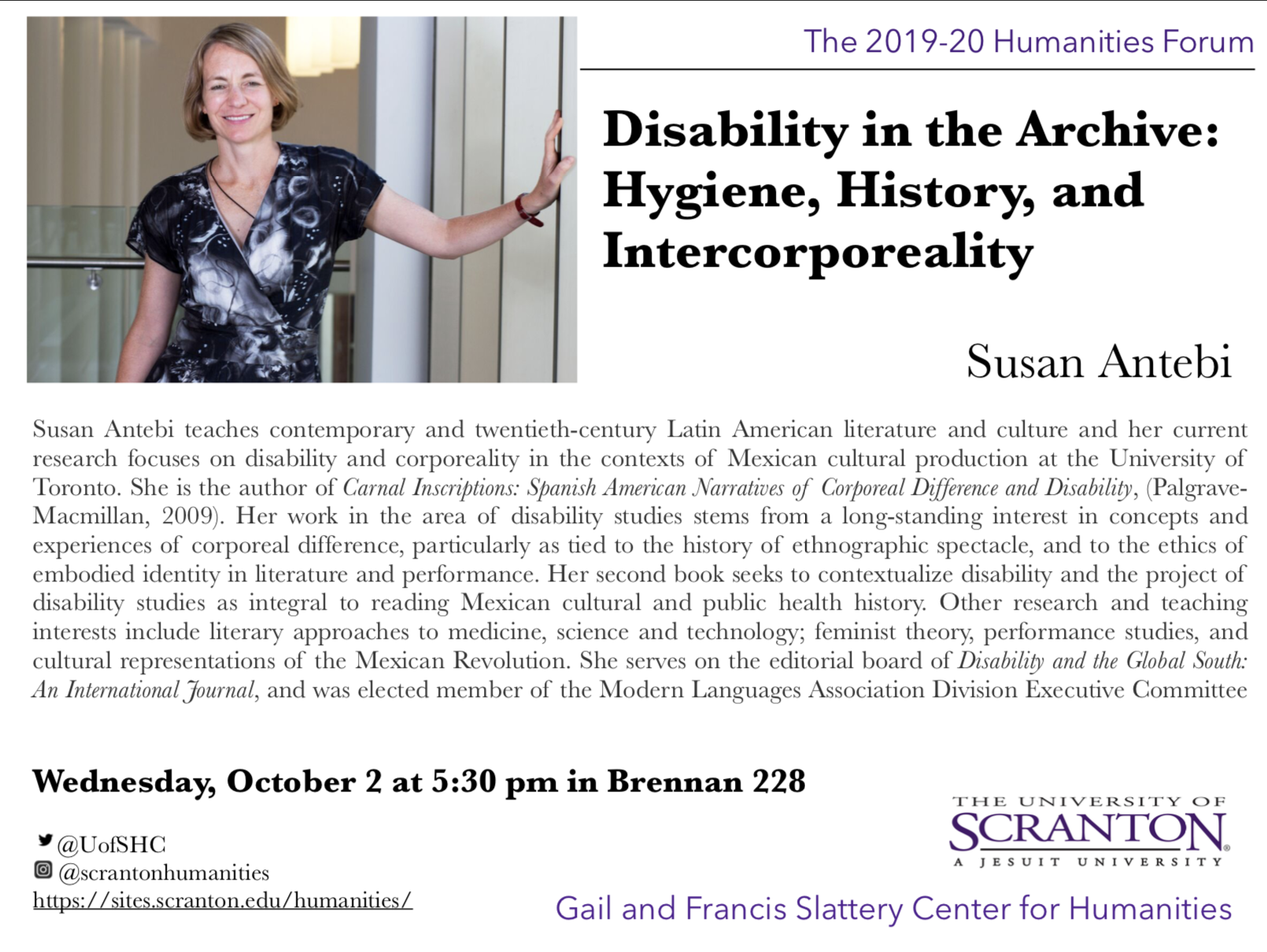
This Wednesday, October 2 at 5:30 in Pern Auditorium (BRN 228) the Humanities Forum continues with Dr. Susan Antebi. Dr. Antebi’s talk, “Disability in the Archive: Hygiene, History, and Intercorporeality” will focus on the idea of disability and as a way of being in the world, rather than a limiting set of ideas.
A professor at the University of Toronto, Dr. Antebi teaches contemporary and twentieth-century Latin American literature and culture and her current research focuses on disability and corporeality in the contexts of Mexican cultural production. She is the author of Carnal Inscriptions: Spanish American Narratives of Corporeal Difference and Disability, (Palgrave-Macmillan, 2009). Her work in the area of disability studies stems from a long-standing interest in concepts and experiences of corporeal difference, particularly as tied to the history of ethnographic spectacle, and to the ethics of embodied identity in literature and performance.
Dr. Antebi’s talk will focus on how notions of disability regularly refer to limitations in a subject’s participation in the world. Yet disability studies scholars and activists have reframed the concept of disability in a variety of ways, focusing for example on collective or fluid subjects, or on disability as a material and social process of becoming rather than a determined condition. In her reading of disability as archival encounter, Dr. Antebi investigates the ways in which disability emerges in relation to distinct temporal frameworks, particularly in the first decades of twentieth-century Mexico. The present-day encounter with archival materials of disability in history is conceived as an embodied experience, necessarily tied to twenty-first century notions of disability and to the fraught horizons of cause and effect that still appear to shape the body’s origins and becomings.